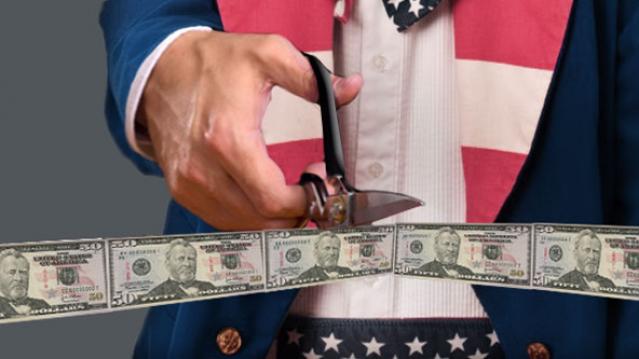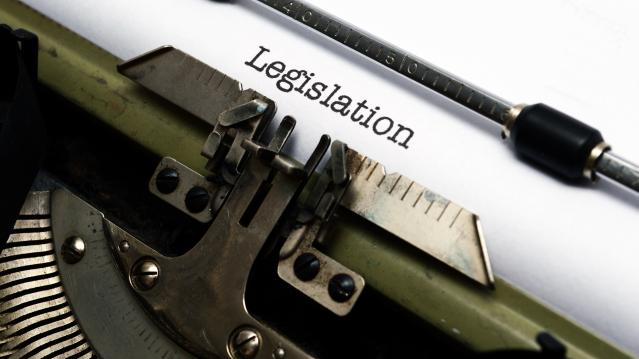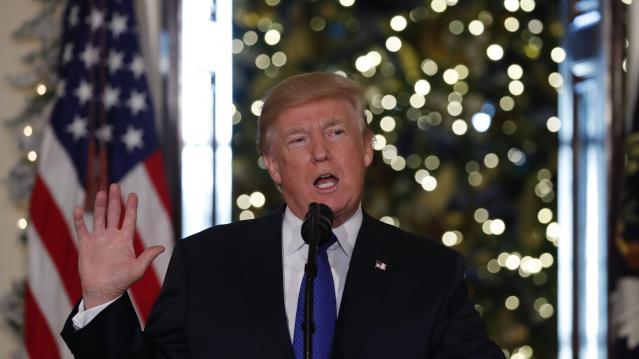Quote of the Day: When Tax Cuts Pay for Themselves

“You … often hear the claim that a lot of tax cuts will ‘pay for themselves,’ that they’ll cause so much additional economic activity that the revenue feedback from that activity will fully offset the direct revenue loss caused by the tax cut so that you end up making money for the federal government, or at least not losing any money. Now, of course that is theoretically possible and it would happen at extreme rates. I mean if a country had a 99 percent flat rate income tax and lowered it to 98 percent, I believe that they almost certainly would collect more revenue at the 98 percent rate than they did at the 99 percent rate. But the idea that this type of effect would occur at today’s tax levels just requires responses that are much bigger than statistical evidence would support and I think much bigger than common sense would indicate if you just ask people how they themselves would react to the tax cut.”
-- Alan Viard, tax policy expert at the American Enterprise Institute
The Hidden Tax Bracket in the GOP Plan

Politico’s Danny Vinik: “Thanks to a quirky proposed surcharge, Americans who earn more than $1 million in taxable income would trigger an extra 6 percent tax on the next $200,000 they earn—a complicated change that effectively creates a new, unannounced tax bracket of 45.6 percent. … The new rate stems from a provision in the bill intended to help the government recover, from the very wealthy, some of the benefits that lower-income taxpayers enjoy. … After the first $1 million in taxable income, the government would impose a 6 percent surcharge on every dollar earned, until it made up for the tax benefits that the rich receive from the low tax rate on that first $45,000. That surcharge remains until the government has clawed back the full $12,420, which would occur at about $1.2 million in taxable income. At that point, the surcharge disappears and the top tax rate drops back to 39.6 percent.”
Vinik writes that the surcharge would have affected more than 400,000 tax filers in 2015, according to IRS data, and that it could raise more than $50 billion in revenue over a decade. At a Politico event Friday, House Ways and Means Chairman Kevin Brady said the surcharge, sometimes called a bubble rate, was included to try to drive more middle-class tax relief.
Read the Republican Tax Bill, Plus the Talking Points to Sell the Plan

House Republicans on Thursday released a 429-page draft of their "Tax Cuts and Jobs Act." Read the bill below, or scroll down for the House summary or a more digestible GOP list of highlights.
Another Analysis Finds GOP Tax Plan Would Balloon Deficits
A study by the University of Pennsylvania’s Wharton School, using the Penn Wharton Budget Model (PWBM), finds that three modeled versions of the plan would raise deficits by up to $3.5 trillion over 10 years and as much as $12.2 trillion by 2040. The lowest-cost plan modeled in the study — a version that would tax corporate income at 25 percent instead of the GOP’s proposed 20 percent and pass-through income at 28 percent instead of 25 percent, among a host of other assumptions and tweaks — would lose $1.5 trillion over 10 years, or $1 trillion after accounting for economic feedback effects. (The budget adopted by Republicans last week allows for up to $1.5 trillion to the added to the deficit.) The study also found that workers’ wages would increase by about 1.4 percent over a decade, far shy of the estimated benefits being claimed by the White House.
The Budget Vote May Depend on a SALT Deal
House GOP members concerned about the proposal to repeal the deduction for state and local taxes are supposed to meet with party leaders Wednesday evening. They’re reportedly looking to reach a compromise deal to keep the tax break in some form — and the budget vote might be at stake, Bloomberg reports: “House Republicans hold 239 seats and need 217 votes to adopt the budget — a critical step to passing tax changes without Democratic support. That means 23 defections could sink the budget resolution — assuming no absences or Democratic support.”
Can Trump Bring Democrats Along on Taxes?

Although Republicans are prepared to go it alone on tax reform, President Trump suggested creating a bipartisan working group on the topic during a Wednesday meeting with senators from both parties. Some senators were open to the idea, but it doesn’t look like Republicans have much interest in slowing down the process with in-depth negotiations. “I don’t really personally see the benefit of creating additional structure. I think we’ve got all the tools we need,” said Sen. John Cornyn (R-TX), who attended the meeting, according to Politico. Democrats appear skeptical, too. Sen. Ron Wyden (D-OR) said he told Trump that the distance between what Republicans were saying about their plan and what it actually does is a serious problem.
